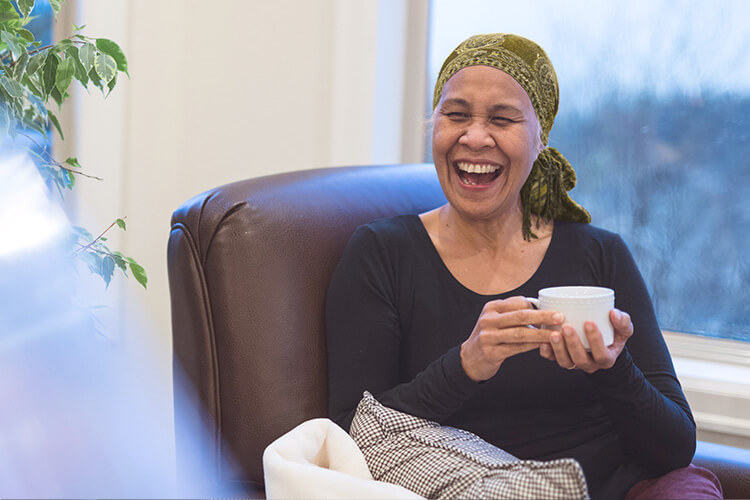High-grade serous ovarian cancer is the most common type of ovarian cancer. Sadly for most people the prognosis is bleak but researchers at Peter Mac and the University of Sydney and their collaborators published data in Nature Genetics that show we can learn a lot from long-term survivors.
“Traditionally we research why treatment fails but we felt a lot could be learned by studying ‘exceptional ovarian cancer survivors’ to try and uncover why and how they have survived against all odds,” said Dr Dale Garsed, Senior Research Officer at Peter Mac.
“We uncovered that there were a number of different things occurring that helped these women survive more than ten years, which is far longer than expected.
“In particular survivors had multiple immune cell signatures, indicating their immune system has mounted a strong response against the cancer cells.”
“Survivors were also more likely to have two or more alterations in genes associated with DNA repair. This seemed to make them more responsive to treatments like chemotherapy.”
“One of the other findings was that long-term survivors had increased cell replication. This is normally associated to a cancer that is aggressive but it is believed that the faster replication made the cell more sensitive to chemotherapy,” Dr Garsed said
The research draws on twenty years of data on over 3,500 ovarian cancer patients from Australia and the US. “Identifying this group of exceptional survivors was only possible due to meticulous, long-term clinical data collection on large numbers of patients who have generously agreed to join our studies” said Professor Anna DeFazio, Group Leader at WIMR and the Daffodil Centre, at the University of Sydney and Cancer Council NSW.
“Our research started with a very deep analysis to try and pin point why these women were surviving. Now we can broaden out this research and apply our findings to a larger group of patients,” said Professor David Bowtell, Group Leader at Peter Mac.
“We hope to apply the insights we learn to the treatment of all women with ovarian cancer to change the course of their disease.
“Before we were walking in the dark, but the research findings have helped shine a spotlight on the path so we now know where to look for more answers.
“Fewer than 15 percent of ovarian cancer patients survive more than ten years with over 50 percent dying in the first five years,” Professor David Bowtell said.
The research was supported by a US Department of Defense Ovarian Cancer Research Program initiative and analysed 60 women with advanced-stage, high-grade serous ovarian cancer who survived for more than ten years.
Whole genome sequencing, clinical histories, and a range of other markers were examined for the 60 women who were exceptional survivors and compared to 66 women who survived less than ten years from diagnosis.




